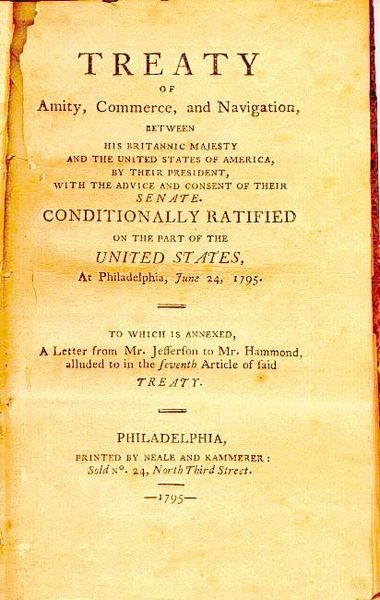History of United States foreign policy
History of United States foreign policy is a brief overview of major trends regarding the foreign policy of the United States from the American Revolution to the present. The major themes are becoming an "Empire of Liberty", promoting democracy, expanding across the continent, supporting liberal internationalism, contesting World Wars and the Cold War, fighting international terrorism, developing the Third World, and building a strong world economy with low tariffs.
The Jay Treaty of 1795 aligned the U.S. more with Britain and less with France, leading to political polarization at home
Thomas Jefferson imagined the United States as the force behind an "Empire of Liberty" that would promote republicanism
USS Constitution surprised analysts with an important victory over HMS Guerriere in 1812.
After 1832 it provided English readers with in-depth coverage of China.
The Empire of Liberty is a theme developed first by Thomas Jefferson to identify what he considered the responsibility of the United States to spread freedom across the world. Jefferson saw the mission of the U.S. in terms of setting an example, expansion into western North America, and by intervention abroad. Major exponents of the theme have been James Monroe, Andrew Jackson and James K. Polk, Abraham Lincoln, Theodore Roosevelt, Woodrow Wilson (Wilsonianism), Franklin D. Roosevelt, Harry Truman, Ronald Reagan, Bill Clinton, and George W. Bush.
Columbia (the American people) reaches out to help oppressed Cuba in 1897 while Uncle Sam (the U.S. government) is blind and does not use its great firepower. Judge magazine, Feb. 6, 1897
View of Liberty, Bedford County, Virginia (1855), Edward Beyer






